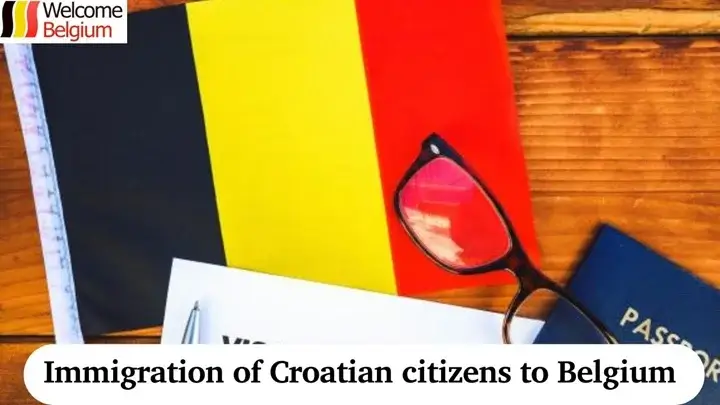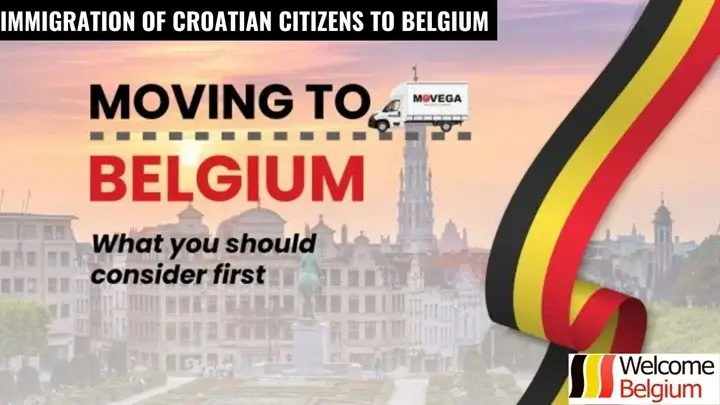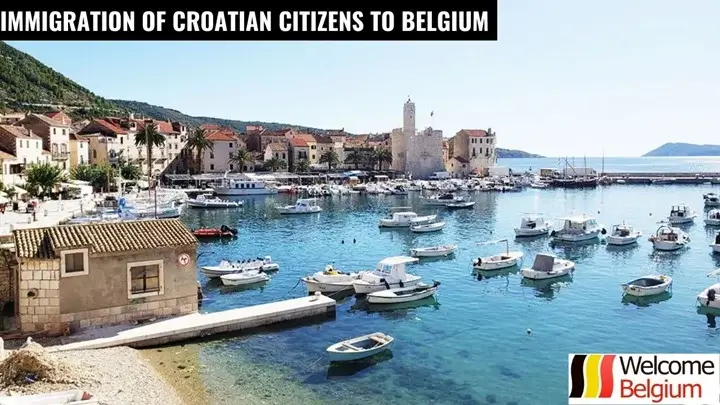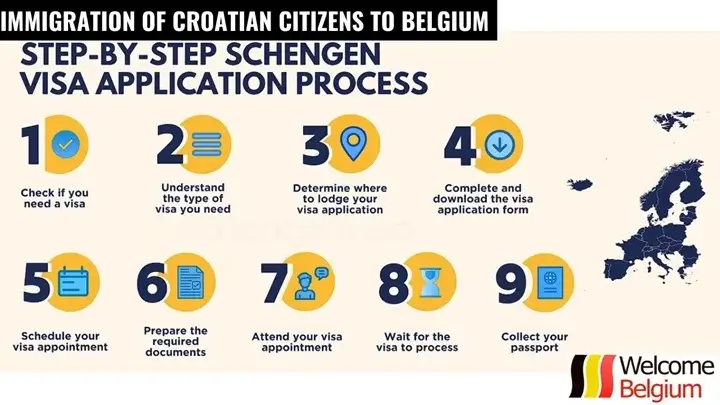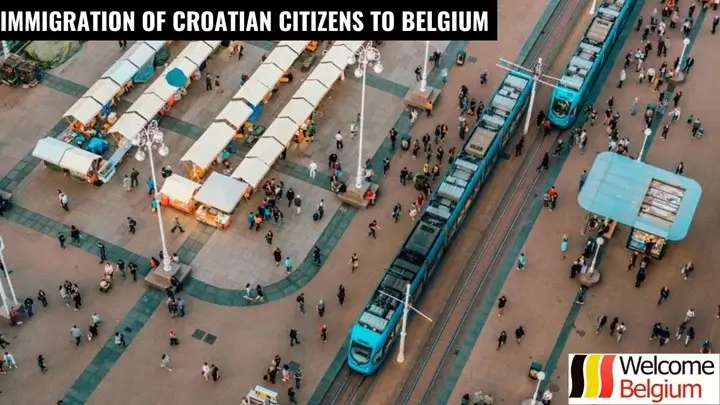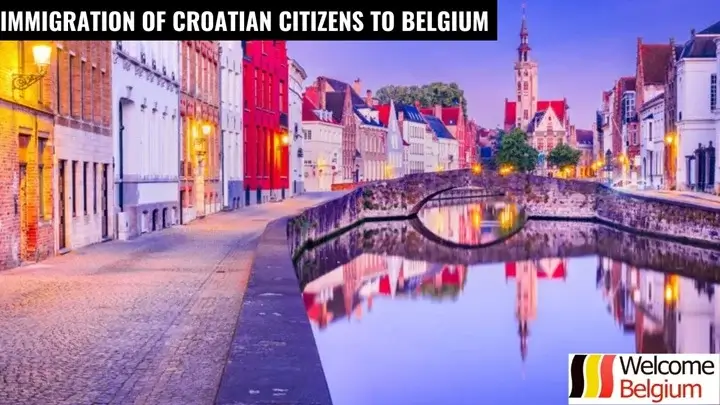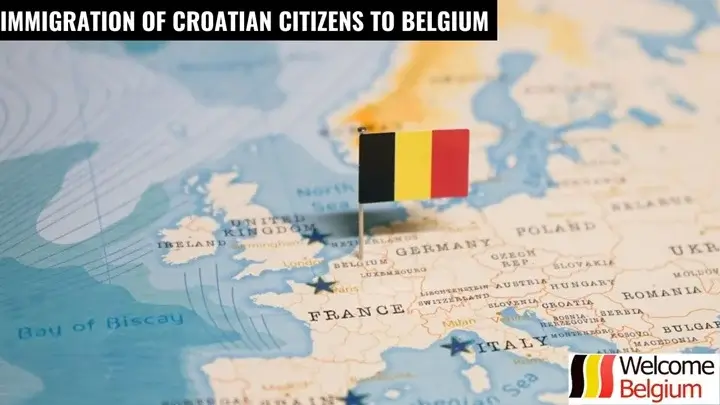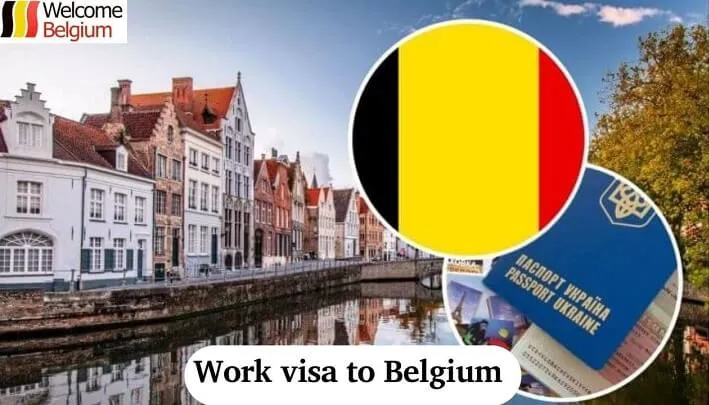Belgium attracts Croatians due to its opportunities for work, study and high quality of life. As EU citizens, Croatians have the right to free movement and residence in the country. However, for a long-term stay and integration, a number of formalities must be completed. In this article, we will look at the main stages of the move, from registration to obtaining permanent resident status.
Conditions of entry and short-term stay in Belgium
Belgium attracts Croatians with its developed economy, high social standards and unique cultural diversity. Its central location in Europe makes the country convenient for work and travel. For many Croatians, this is an opportunity to improve their quality of life and realize their professional ambitions. Before moving, it is important to understand the conditions of entry and temporary stay.
Conditions for entry and short-term stay in Belgium in detail:
- Croatian citizens do not require a visa to enter Belgium for stays of up to 90 days.
- A biometric passport is required to cross the border.
- During the first three months, registration with the municipality is not required if the purpose of the visit is tourism, business or short-term studies.
- For tourists and short-term visitors, health insurance valid in the EU is required.
- When planning a longer stay, you will need to indicate the purpose of the visit (work, study, family reunification).
According to data for 2024, about 2,000 Croatian citizens have moved to Belgium. Most of them choose large cities such as Brussels and Antwerp for work and study. This flow of immigrants remains stable due to open opportunities within the EU. To make the move comfortable, it is worth preparing in advance and learning the nuances of the local bureaucracy.
Interesting fact:
Interestingly, due to Croatia’s membership in the EU, the relocation procedure is significantly simplified compared to citizens of countries outside the union.
Types of long stay
Croatian citizens who plan to stay in Belgium for a long period of time need to choose a visa type. This may be due to work, study, family reunification or other important reasons. It is important to understand that for a long-term stay in the country, you will need to apply for different types of visas, as well as comply with all legal requirements. In this section, we will look at the types of visas that open up the possibility of long-term residence in Belgium.
Types of long-term visas to Belgium:
- Working visa (Visa for Employment)
- For employment in Belgium for Croatian citizens working under a contract or as part of a project.
- Usually up to 1 year with the possibility of extension.
- Cost of registration: about 200–300 euros.
- Student Visa
- For Croatian citizens who have been admitted to a higher education programme in Belgian educational institutions.
- Up to 1 year with the possibility of extension as the educational process progresses.
- Cost of registration: about 150 euros.
- Family Reunification Visa
- To reunite with a spouse, children or other immediate relatives living in Belgium.
- Usually 1-2 years.
- Cost of registration: about 200 euros.
- Entrepreneur Visa
- For Croatian citizens opening their business in Belgium.
- up to 2 years with the possibility of extension.
- Cost of registration: about 250 euros.
When choosing a visa, it is important to consider the purpose of your long-term stay in Belgium. Each type of visa has its own characteristics and requirements that must be carefully met to avoid refusals. Contact official sources and consultants to choose the best visa and complete all the documents without problems. Understanding all the procedures will help you adapt faster to a new country.
Tip:
For Croatian citizens, as EU members, the visa process in Belgium will be easier, but it is important to comply with all legal requirements.
Registration for long-term residence
Croatian citizens who wish to stay in Belgium for more than three months must go through a registration process. This process includes several stages, starting with submitting an application to the local municipality. Registration status requires the presentation of a number of documents and confirmation of the purpose of stay. It is important to take care of registration in a timely manner to avoid problems with your stay in the country.
Stages of registration for a long stay in Belgium:
- Registration with the local municipality
- Upon arrival in Belgium, Croatian citizens must register with the municipality where they live.
- Required documents: passport, proof of financial solvency, health insurance, documents confirming the purpose of stay (work, study, family reunification, etc.).
- Address and website for registration: each commune in Belgium has its own municipality, for example in Brussels: Brussels City Hall, Rue du City 1000, Brussels, www.brussels.be
- Waiting time: Registration usually takes 1 to 3 weeks.
- Cost of registration: about 25-30 euros.
- Obtaining a temporary residence permit
- After submitting documents, Croatian citizens are issued a temporary residence permit, which allows them to stay in Belgium for up to 5 years.
- Address and website for submitting applications: www.office.eu
- Waiting time: from 2 to 6 weeks depending on the region.
- Cost of registration: about 50 euros.
- Obtaining a permanent residence permit
- To obtain a permanent residence permit after 5 years of residence, it is necessary to prove financial solvency, the availability of permanent housing and knowledge of one of the official languages of Belgium.
- Address and website: www.immigration.belgium.be
- Waiting time: from 3 to 6 months.
- Cost of registration: about 150-200 euros.
If you are denied registration, do not despair – you can appeal to the court or contact the Croatian Embassy in Belgium for advice. It is important to keep track of deadlines and meet all requirements to avoid repeated refusals. Remember that paperwork does not always go quickly, so plan ahead.
Advice:
If you have any problems with your documentation, please contact an immigration attorney for assistance.
Employment and professional activity
Croatian citizens, like all other EU citizens, have the right to work in Belgium without the need for a work visa. This greatly simplifies the employment process, as there is no need to obtain a work permit in advance. However, depending on the type of work, there may be some formalities, such as registration with the municipality or other paperwork. It is also important to consider that for some professional categories, confirmation of qualifications or diplomas will be required.
Popular fields of activity in Belgium for Croatians:
- Construction (builders, engineers, architects)
- IT sphere (developers, programmers, system administrators)
- Tourism and hospitality (hotel staff, guides, waiters)
- Healthcare (doctors, nurses, pharmacists)
- Logistics and transport (drivers, storekeepers, freight forwarders)
- Education (teachers, foreign language teachers)
- Agriculture (farm workers, agronomists)
To find employment in Belgium, Croatian citizens need to take into account that some professions require recognition of their diplomas or qualifications. This primarily concerns professions in medicine, law, engineering and some others. The process of recognizing diplomas is regulated by Belgian authorities and depends on the country in which the diploma was obtained. Recognition of qualifications helps to avoid additional problems with employment and increases the chances of success.
Tip:
The professional recognition system in Belgium is flexible enough to allow EU citizens to quickly adapt to new working conditions.
Obtaining permanent residence in Belgium for residents of Croatia
Obtaining permanent residence in Belgium for Croatian citizens is a process that requires several mandatory steps. After five years of continuous residence in the country, Croatians can apply for permanent residence. It is important to meet the requirements for income, language skills and integration into society. In this section, we will discuss how to correctly apply for permanent residence in Belgium and what is needed for this.
Stages of obtaining permanent residence in Belgium for Croatians.
- Residing legally in Belgium for 5 years.
- Collection of documents confirming income and employment.
- Proof of knowledge of one of the official languages of Belgium.
- The process of applying for permanent residence at the local immigration authorities.
- Waiting for a decision and obtaining permanent resident status.
- Regular checks for compliance with conditions, including social and financial stability.
If your application for permanent residence has been rejected, do not panic. You can appeal and find out what additional documents or evidence may be useful. It is important to carefully follow the instructions of the immigration authorities and not miss the deadlines for submitting documents. You can also seek help from a lawyer to speed up the process.
Tip:
To successfully apply for permanent residence, it is useful to take a course in one of the official languages of Belgium, which will increase your chances of a positive decision.
Obtaining Belgian citizenship for Croatians
Obtaining Belgian citizenship for Croatian citizens is a process that takes time and several steps. After five years of legal residence in the country, Croatians can apply for permanent residence (PR). This stage involves collecting documentation, proving financial solvency and knowledge of Belgian culture. It is important to prepare in advance and know what documents and requirements will be needed for successful registration.
Detailed stages of obtaining permanent residence in Belgium for Croatians.
- Stay in Belgium legally for 5 years.
- Register with the local municipality and apply for permanent residence.
- Proof of financial independence (regular income, savings).
- Knowledge of one of the official languages of Belgium (French, Dutch or German).
- Waiting for a decision from immigration authorities, providing additional documents upon request.
- Taking the oath and receiving a permanent resident certificate.
If you have been denied permanent residence, do not despair – in this case, you can file an appeal within a certain period. It is recommended to consult a lawyer to find out the reasons for the refusal and correct the deficiencies. It is also important to continue living in Belgium legally in order to be able to reapply. With the right approach, you can overcome all the difficulties on the way to citizenship.
Tip:
It is important to remember that knowledge of one of the official languages of Belgium can significantly speed up the process of obtaining citizenship.
Education and training
Belgium is a popular destination for students, including Croatians, due to the high quality of education and international recognition of degrees. Students from Croatia can study at Belgian universities and colleges without the need for a visa. However, in order for the study to go smoothly, it is necessary to correctly complete all the documents and follow the established requirements. In this section, we will consider the process of obtaining a study permit and other important aspects for Croatians.
Stages of obtaining a permit to study in Belgium for Croatians.
- Proof of enrollment: An official letter or document confirming enrollment must be provided.
- Registration at the local municipality: If the stay is planned to be longer than 3 months, the student must register at the place of residence.
- Insurance: availability of medical insurance for the entire period of stay.
- Sufficient financial means: It must be proven that the student has sufficient funds to support himself/herself in Belgium.
- Language requirements: knowledge of one of the official languages (French, Dutch or German) at a level sufficient for study.
If a Croatian student has been denied a study permit, it is important to find out the reason and correct any deficiencies in the documents. In such cases, it is recommended to contact the educational institution or local immigration services for clarification and possible steps to correct the situation. Sometimes, additional documents or an improvement in financial situation will be required to re-apply.

